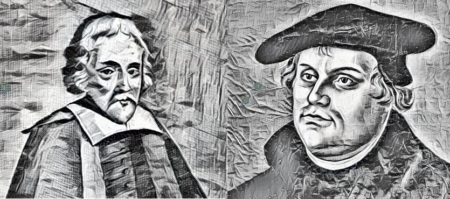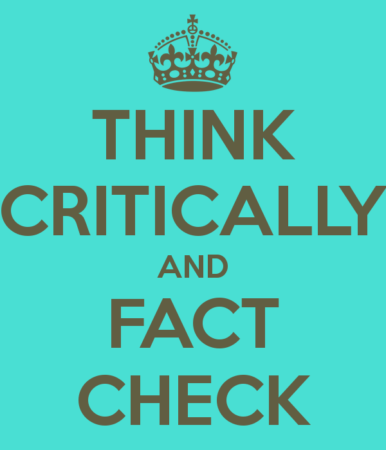Podcast: Play in new window | Download
Subscribe: Spotify | Email | RSS
 This episode is the first part of my recent conversation with Christian author Kermit Zarley, author of The Restitution of Jesus Christ.
This episode is the first part of my recent conversation with Christian author Kermit Zarley, author of The Restitution of Jesus Christ.
On this 500th anniversary of the Reformation, are we still fans of reforming? Or is reforming in light of scripture only acceptable in the distant past?
Also, did Luther and Calvin go far enough? Biblical unitarian Christians have long contended that our theology of the one God needs to be rolled back, past the catholic councils, to the Bible’s view that the one God just is the Father. While evangelicals’ official ideology is that all must be based on scripture, and that the Trinity is easily derived from the Bible, in fact, they habitually defer to catholic traditions, and generally refuse to debate whether or not the Trinity can be derived from the Bible. We briefly discuss the Trinity portion of the recent “Reforming Catholic Confession,” meant as a summation of what (nearly) all Protestants believe, and relate this to scriptural language about the one God, aka the Father, and also to God’s “spirit” in the Bible.
[spp-tweet tweet=”Is reforming in light of scripture only acceptable in the distant past?”]
- Kermit Zarley’s home page
- “How to Fact-Check Flaky Theology with the Bible?“
- The Restitution of Jesus Christ.
- Christianity Today magazine
- “A Reforming Catholic Confession“
- podcast 127 – Kermit Zarley’s Solving the Samaritan Riddle
- podcast 126 – What is an evangelical? With Kermit Zarley
- podcast 87 – Kermit Zarley on the deity and preexistence of Jesus
- podcast 86 – Kermit Zarley on distinguishing Jesus and God
- “The unfinished business of trinitarian theorizing“
- What is the Trinity?
- podcast 189 – The unfinished business of the Reformation
- podcast 191 – Ware’s Outline of the Testimony of Scripture Against the Trinity
- Williams, The Radical Reformation, 3rd edition.
- Hans Küng on New Testament theology
- Jesus’s argument in John 10
- Jude 1:3; Matthew 16:13-30; Proverbs 18:17; John 17:1-3; John 10:34-35; 2 Corinthians 4:4; 1 Corinthians 8:4-6; Daniel 7:13-14.
- 21st Century Reformation Online
- trinities podcast Facebook group
- Frederic Henry Hedge
- This week’s thinking music is “A Mighty Fortress is our God” by Martin Luther.


Nothing but the sound of chirping crickets from the White camp, since this: https://trinities.org/blog/some-clarifications-for-dr-white/ Really, he ought to debate me, as I can guarantee that my arguments will in no way “assume unitarianism” (which is his standard complaint wielded against any non-trinitarian reading of any biblical text). e.g. https://trinities.org/blog/podcast-189-the-unfinished-business-of-the-reformation/ And although I’m not a Craig-level debater, I ought to be able to do better than some of those White has debated. I don’t think he’d be bored!
Would gladly debate Dr. Craig – although I think he wants to avoid this topic, as he has stuck his neck out with his own controversial Trinity theory, as opposed to the usual obfuscation. I may contact him at some point.
Trinity is one topic, and “high christology” is another. But I would be interested in both. There are some possibilities for a hosting venue for somesuch debate with me, but as of now, nothing is concrete. I’m so eager not because I’m some sort of great debater – I’m not – but because I know the strength of my case and the importance of these topics for the body of Christ. It is important, though, to have a worthy opponent – someone who can actually engage my work, and who will actually have a clear enough position to critique.
The way the evangelical establishment is now, they just prefer to have these topics off the table. Or rather, they can only be put on the table by Muslims and “liberals.” Then we (evangelicals) can bang our cultural identity drum loudly and distinguish ourselves from those outsiders. The mind goes off, when matters are turned to us vs. them. Challenges by insiders, by their conservative Christian brethren, are just beyond the pale.
But this, of course, is crazy. It’s a sort of crazy we inherited from the 4th c. catholics and the 16th c. Magisterial reformers. We can debate Arminianism vs. Calvinism vs. open theism. We can debate congregational vs. episcopal. We can debate Protestant vs. Catholic vs. Orthodox. We can debate the Protestant canon vs. the Catholic canon vs. the Orthodox canon. We can debate cessationist vs. Pentecostal. Just so, the cause of truth is best served by a free, open, serious, and full debate between the various sorts of trinitarians, oneness, and the various sorts of unitarians.
White’s excuse that *he* goes by the Bible while others (like me) are all influenced by “philosophy” – that just doesn’t hold water. My views on these topics are primarily (really, nearly completely) Bible-motivated, and he too has been subject to philosophical influences and assumptions. Anyone who’s familiar with my work will notice that I carefully avoid controversial philosophical speculations, while stick carefully to logic, to careful reasoning and common sense. Frankly, White speculates more than I do.
Dale,
I came to see many of the same problems you mentioned above after I carefully studied this for some time. There is a certain amount of grace and wiggle room most will grant for many doctrines, but the doctrine of the Trinity is not one of them to most people. Neither is the case for it nearly as ironclad as some of the other issues people are willing to debate.
Maybe W.L. Craig would be up for a more in-depth explanation of his “Neo-Apollinarianism” sometime in the future? I read the transcript of the interview where he explained it and I couldn’t get at what the exact difference was between his stance and original Apollinarianism. It seemed the same claims were made but with different inferred conclusions about what this meant for the reality (or lack thereof) concerning Christ’s “humanity.”
It is interesting about this reluctance of trinitarian theologians to debate with unitarians, when one might think that, if they were so confident in their case, they would be eager to do so. Dale have you had any reply from James White about your challenge to him? What about issuing a more general challenge, spread net wider, WL Craig, the early high Christology people such as Bauckham, Gathercole, Bird, Evans …?
Comments are closed.